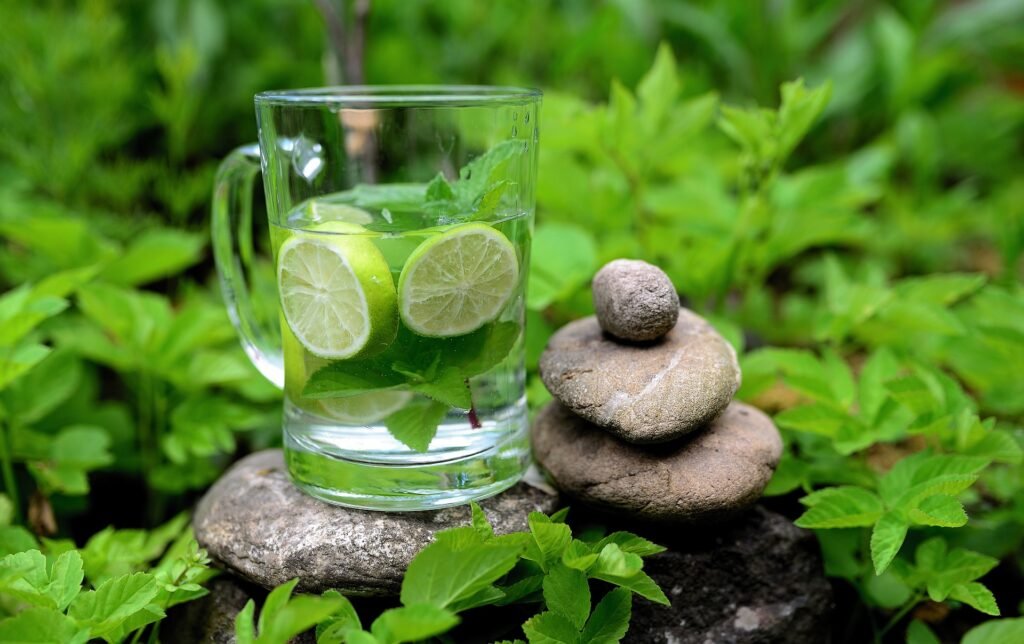Written and updated on November 24, 2023, by Abhishek Sonkar [B.com., B.Ed., M.Ed.]
Table of Contents
Introduction
Heavy metals like lead, mercury, arsenic and cadmium are toxic substances that can accumulate in the body over time if exposed to high levels. While some level of exposure is unavoidable due to their presence in our environment, reducing heavy metal toxicity is important, especially for young children. Toddlers are more vulnerable to heavy metal toxicity due to their small size and developing bodies and brains. In this blog, we will discuss common sources of heavy metal exposure for toddlers, potential health effects, and natural ways to support the body’s detoxification processes through diet and lifestyle.
Common Sources of Heavy Metal Exposure for Toddlers
- Household paints and coatings: Older homes painted with lead-based paint can expose toddlers to lead dust and chips. Renovations can stir up lead dust.
- Consumer products: Children’s toys, jewelry, cosmetics and personal care products may contain heavy metals like lead, cadmium and mercury.
- Food: While food is generally a minor source, some foods like rice, spices and seafood can contain higher levels of arsenic.
- Water: Aged plumbing with lead pipes or solder can leach lead into drinking water. Some municipal water supplies may also contain heavy metals.
- Air: Industrial pollution, vehicle emissions, coal burning and waste incineration release heavy metals into the air we breathe.
- Soil: Contaminated soil near highways, industrial areas or old mining sites may contain higher levels of lead, arsenic and other heavy metals. Toddlers can ingest soil through hand-to-mouth contact.
- Dust: Household dust can accumulate lead and other heavy metals from various sources like paint, soil and air pollution. Toddlers are very active on floors.
Potential Health Effects of Heavy Metal Toxicity in Toddlers
- Neurodevelopmental delays: Heavy metals like lead and mercury can damage the developing brain and nervous system, potentially causing issues like lowered IQ, learning disabilities, behavioral problems and developmental delays.
- Anemia: Lead exposure is a leading cause of acquired anemia in young children by interfering with hemoglobin production. Anemia can cause fatigue.
- Kidney damage: Heavy metals like cadmium and lead can accumulate in the kidneys and cause damage over time, potentially leading to kidney disease.
- Bone problems: Lead interferes with vitamin D and calcium metabolism, potentially stunting bone growth or development in toddlers.
- Hearing loss: High mercury exposure before age 3 is a risk factor for permanent hearing loss.
- Gastrointestinal issues: Heavy metals may cause nausea, vomiting, diarrhea or constipation by irritating the digestive tract.
- Skin rashes: Some toddlers exposed to heavy metals develop unexplained rashes or skin irritations.
- Developmental delays: Along with neurological effects, heavy metals may contribute to delays in meeting developmental milestones.
- Behavioral issues: Conditions like ADHD and autism have been linked to early heavy metal exposures during critical windows of brain development.
Heavy Metal Detoxification Naturally in Toddlers
- Emphasize antioxidant-rich fruits and vegetables like berries, citrus fruits, broccoli and spinach. Antioxidants help neutralize free radicals caused by heavy metals.
- Include cruciferous veggies daily like kale, cabbage and Brussels sprouts. They contain compounds that induce liver detoxification enzymes.
- Incorporate fiber from whole grains, beans, lentils and ground flaxseeds. Fiber binds to heavy metals in the gut for elimination.
- Limit processed foods, sugar and unhealthy fats which can impair detoxification.
- Avoid excess calcium, iron or zinc which may interfere with heavy metal excretion.
- Drink purified water to avoid additional heavy metal exposure from contaminated sources.
- Consider a children’s multivitamin/mineral supplement which provides nutrients that support detoxification.
- Discuss supplementation with your pediatrician, as some supplements like alpha-lipoic acid are not suitable for young children without guidance.
- Promote outdoor play for healthy vitamin D levels, but limit time in contaminated soils.
- Breastfeed if possible, as breastmilk contains compounds and antibodies that help detoxify heavy metals.
- Manage stress, as stress hormones can impair the body’s ability to eliminate toxins.
- Ensure adequate rest so the body has energy to focus on detoxification overnight.
- Consider a HEPA air filter to help remove heavy metals and other toxins from indoor air.
Natural Detoxification Aids in Toddlers
- Chlorella and spirulina contain compounds that bind to heavy metals in the gut for removal.
- Diatomaceous earth is a type of fossilized algae that can adsorb toxins in the digestive tract.
- Bentonite clay has a negative charge that attracts and traps positively charged heavy metal ions.
- Apple cider vinegar contains malic acid which supports liver function and chelation.
- Dandelion is a liver-supporting herb that enhances bile flow and detoxification.
- Turmeric contains curcumin which supports phase 2 liver detoxification pathways.
Testing for Heavy Metal Toxicity in Toddlers
- Hair mineral analysis: Hair provides a long-term picture of total body burden for metals like lead, mercury, cadmium and arsenic.
- Urine provocation test: This measures excretion of heavy metals after administering a chelating agent under medical supervision.
- Blood tests: A blood lead level test is commonly done at age 1 and 2. It only reflects very recent exposure.
- DMSA challenge test: This oral chelator test measures urinary excretion of certain metals like mercury.
Conclusion
FOR MORE VALUABLE TIPS BUY OUR PARENTING COURSES https://www.kidzoot.com/courses/
CONSULT YOUR PERSONAL PARENTING SOLUTIONS VIA APPOINTINTMENT AT https://www.kidzoot.com/appointment-booking/
Follow Us on Twitter www.twitter.com/kidzootworld

